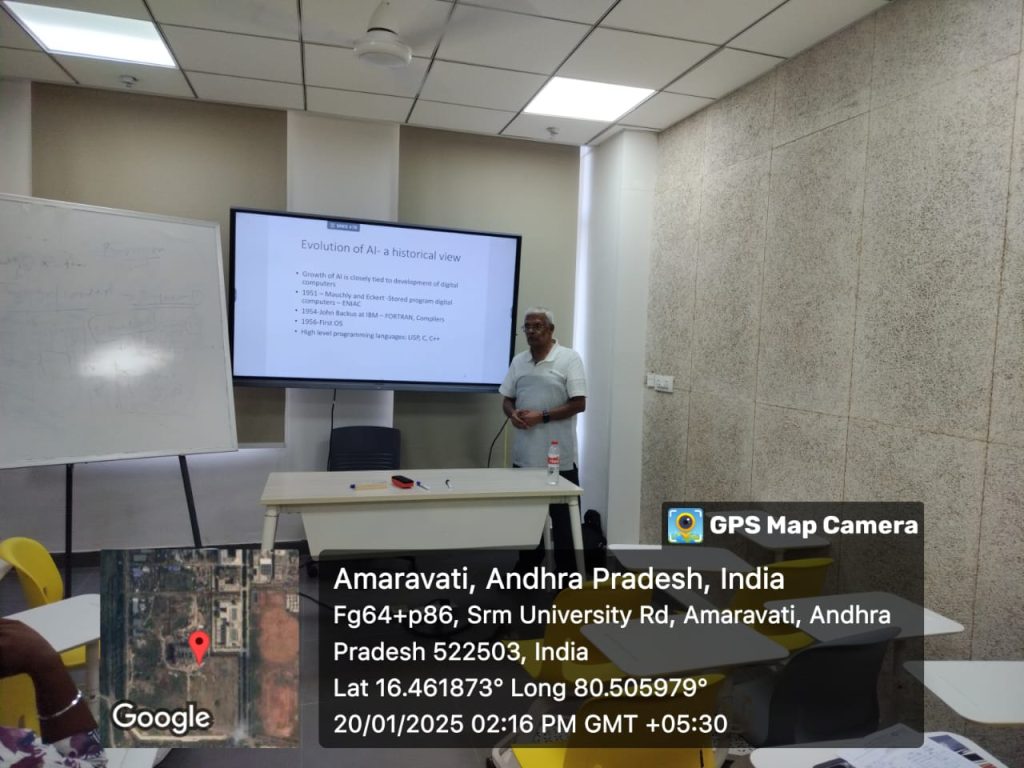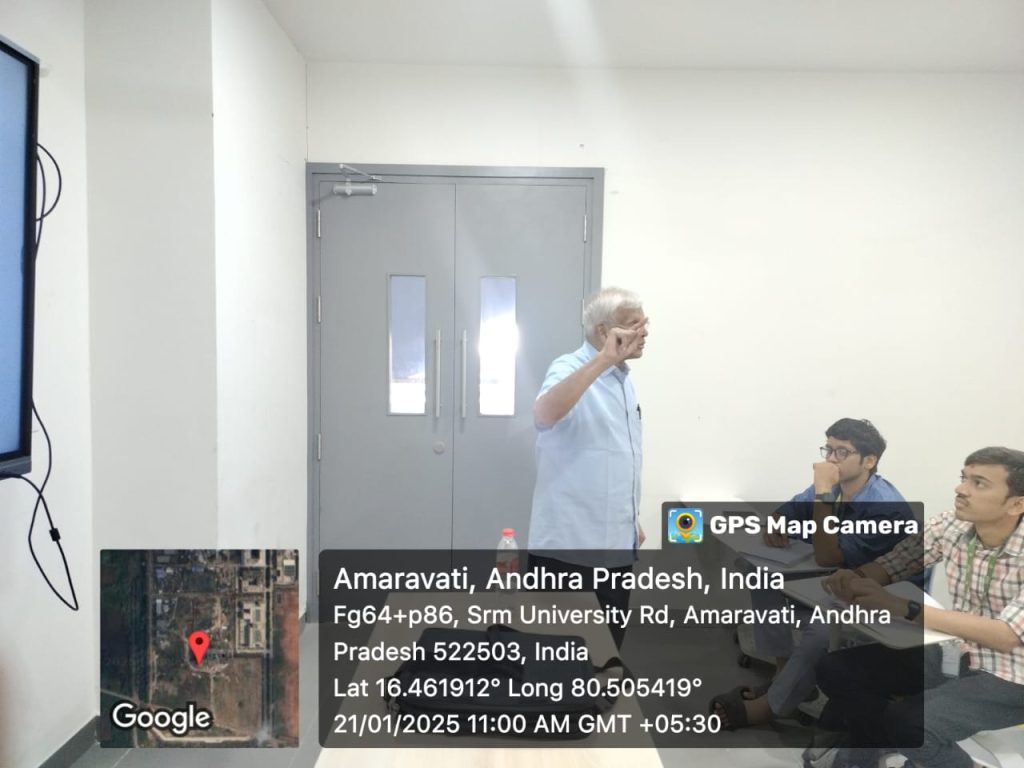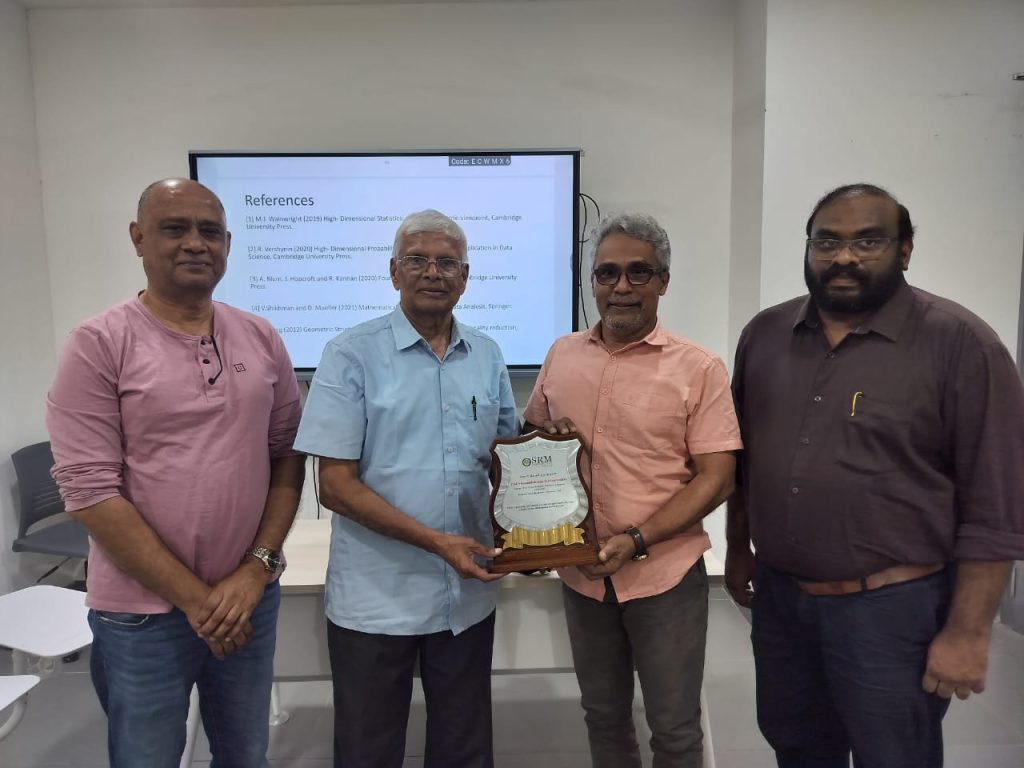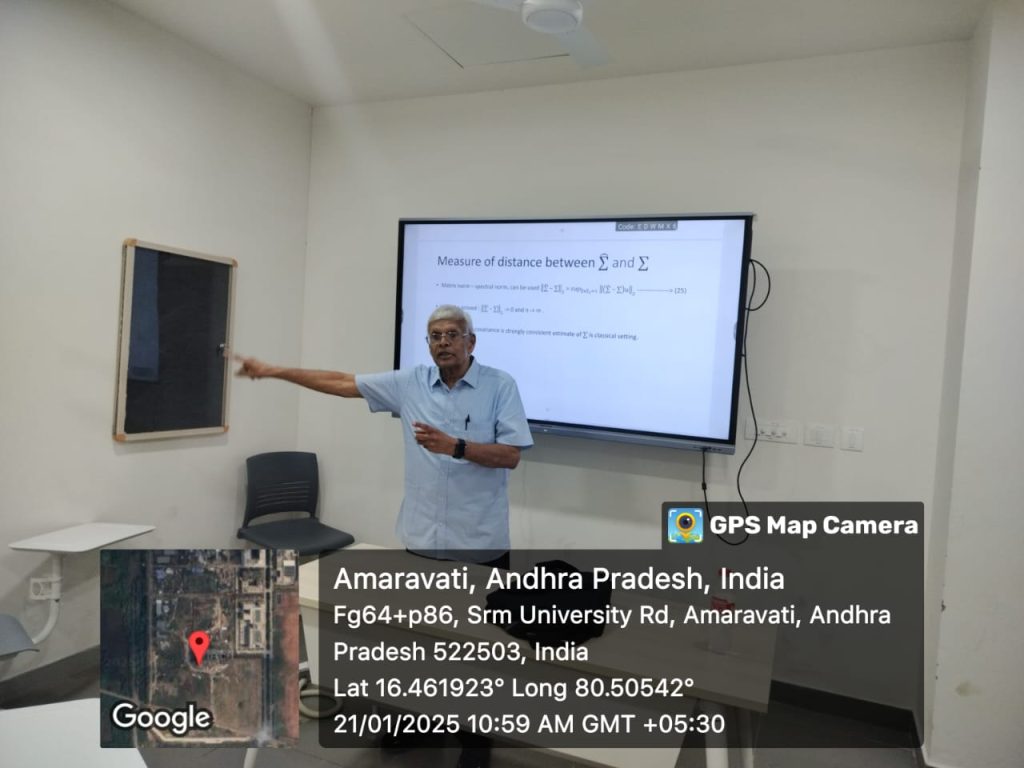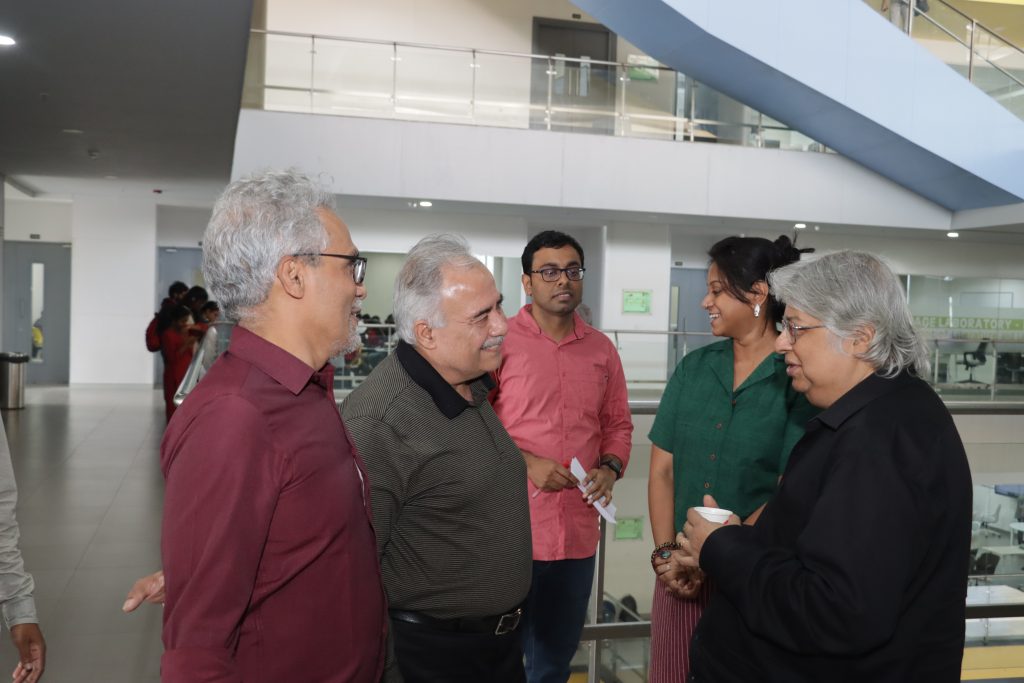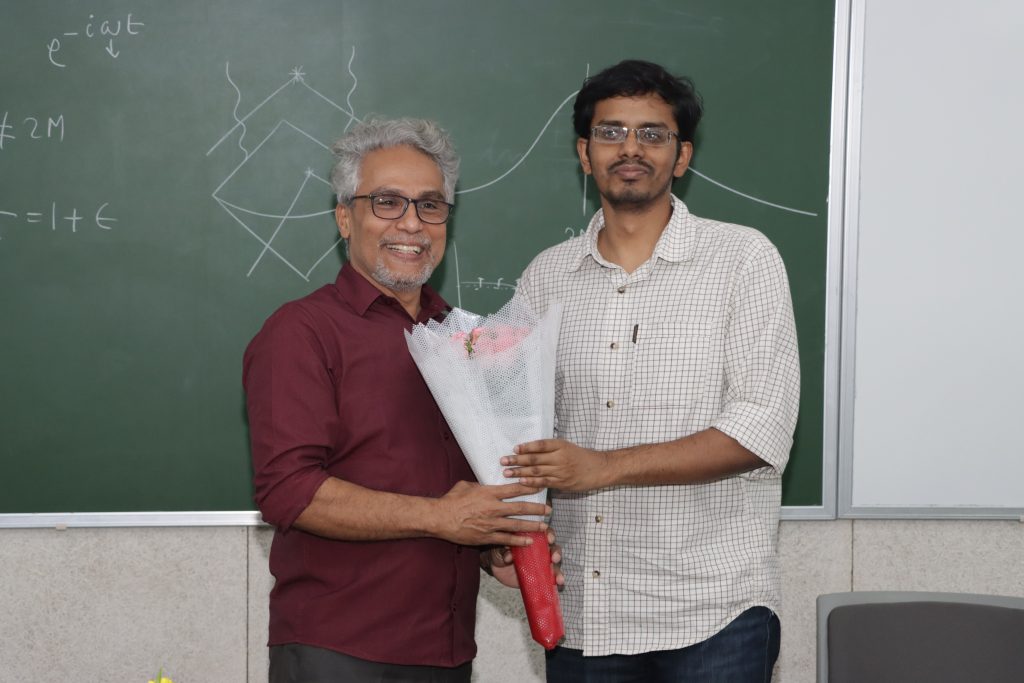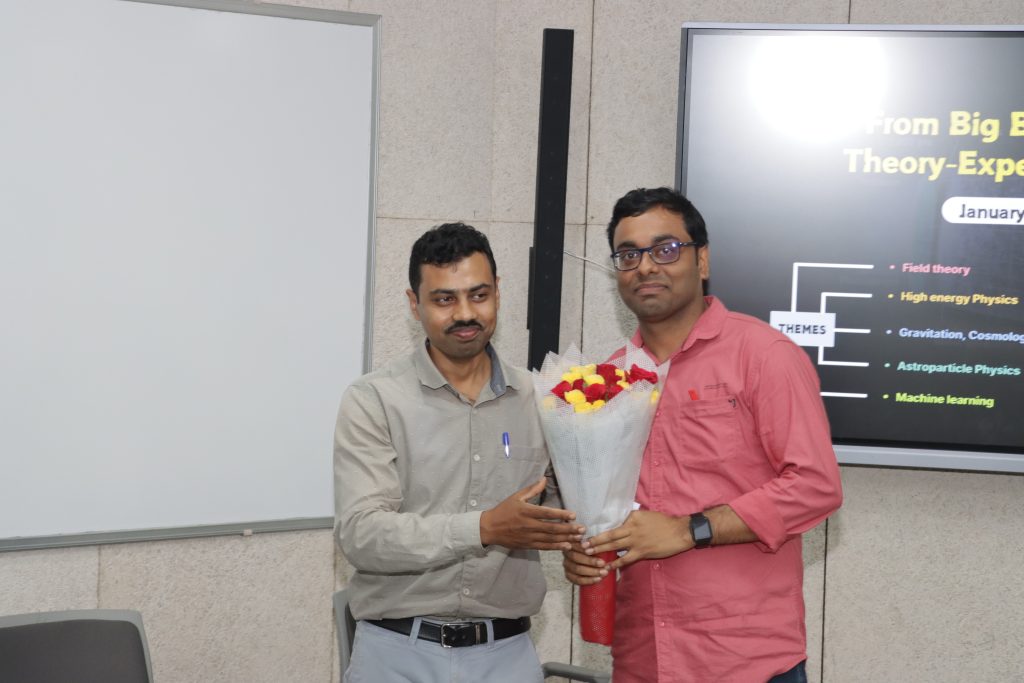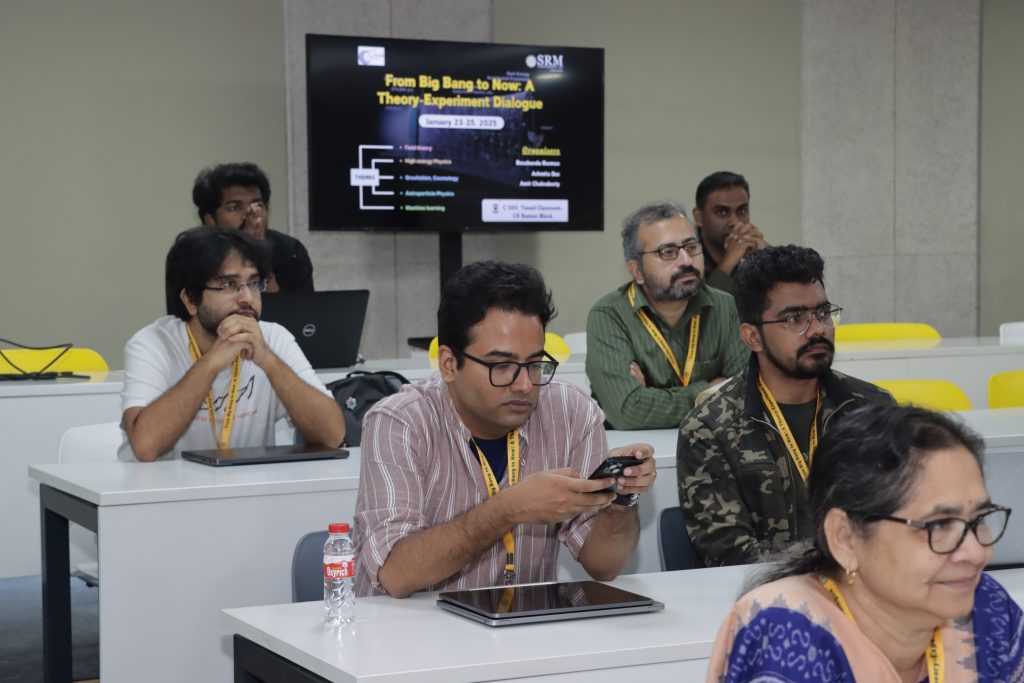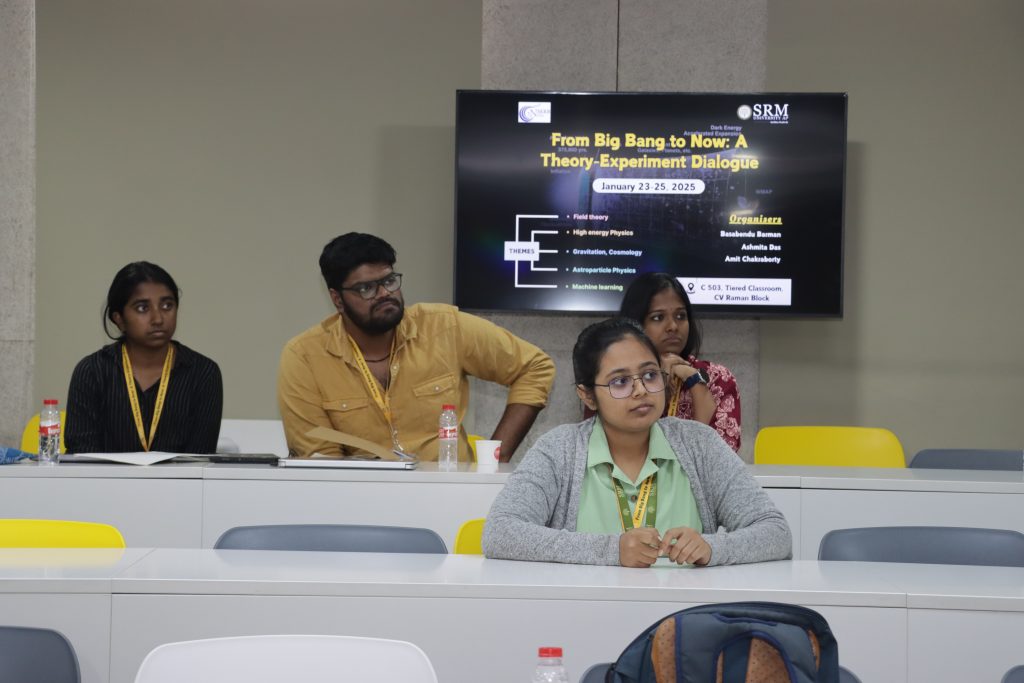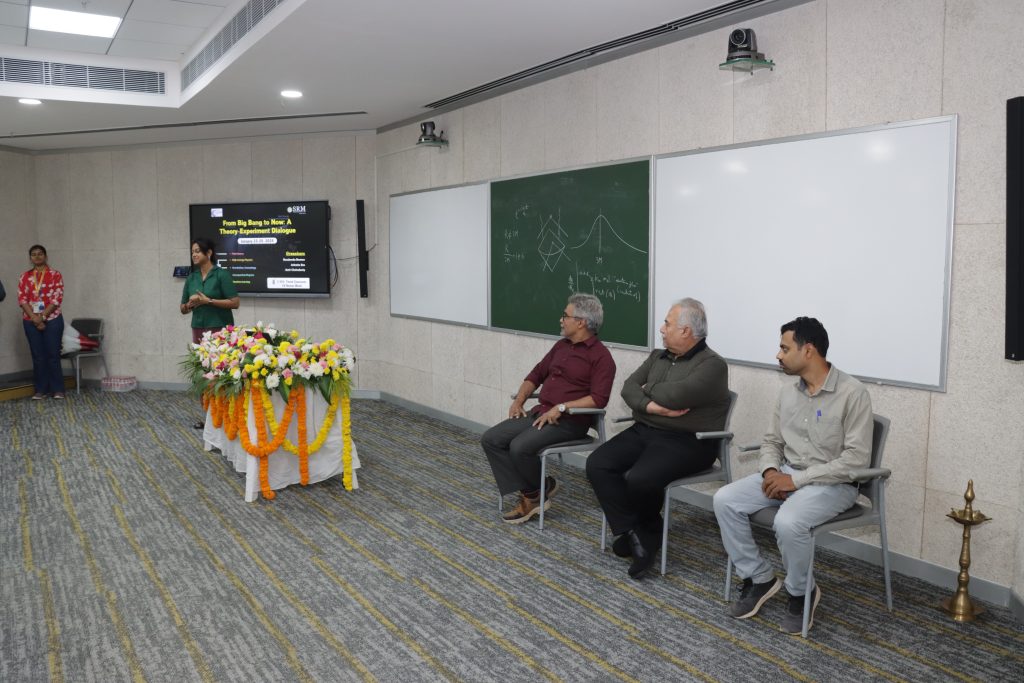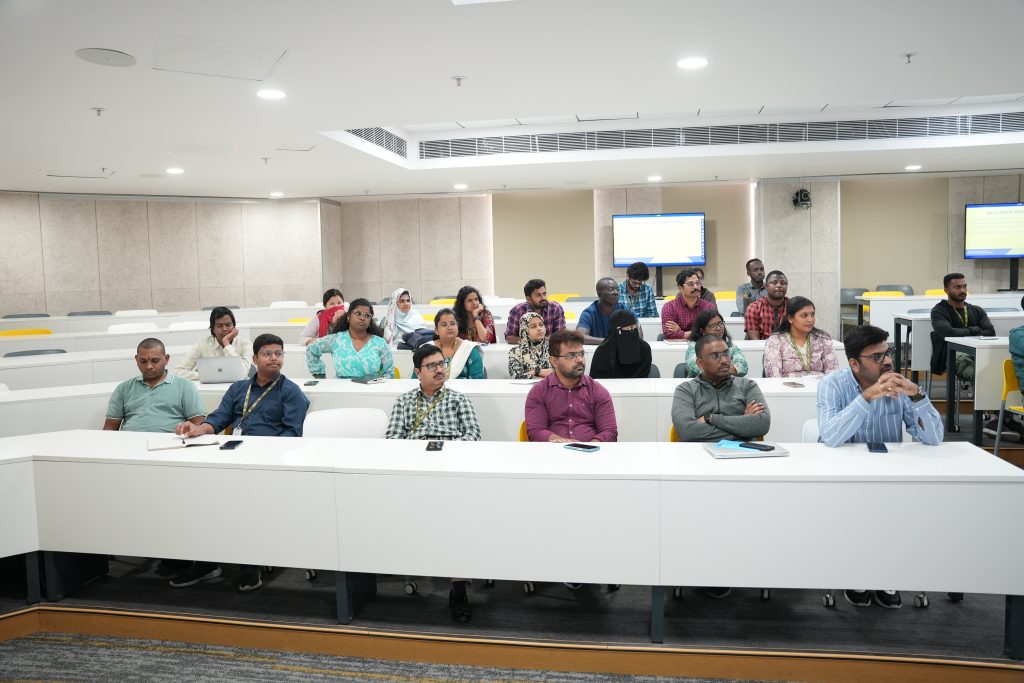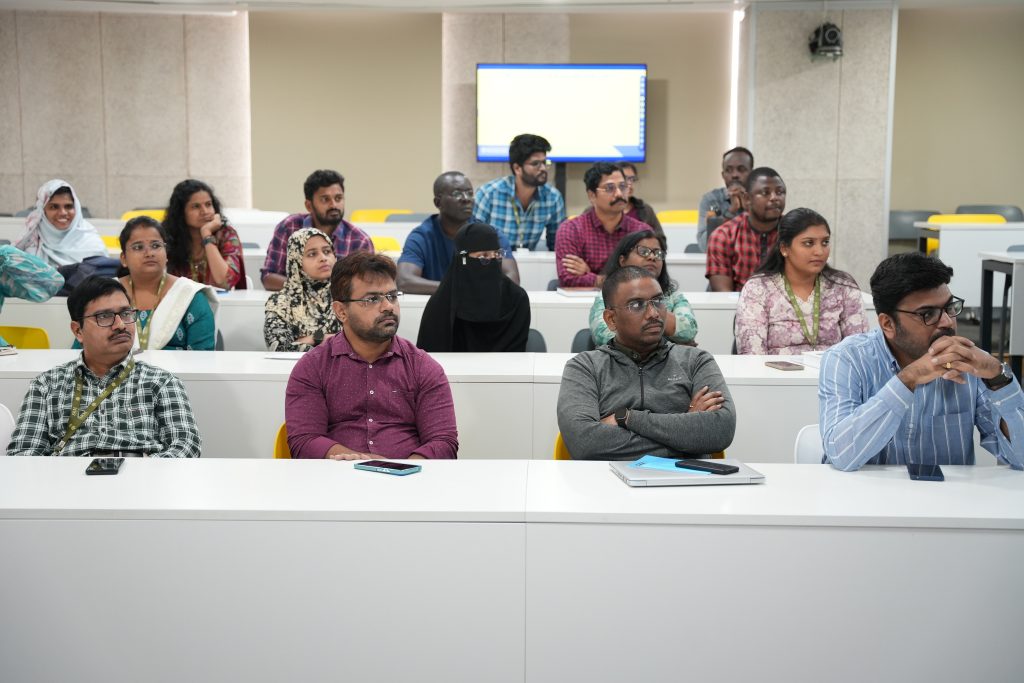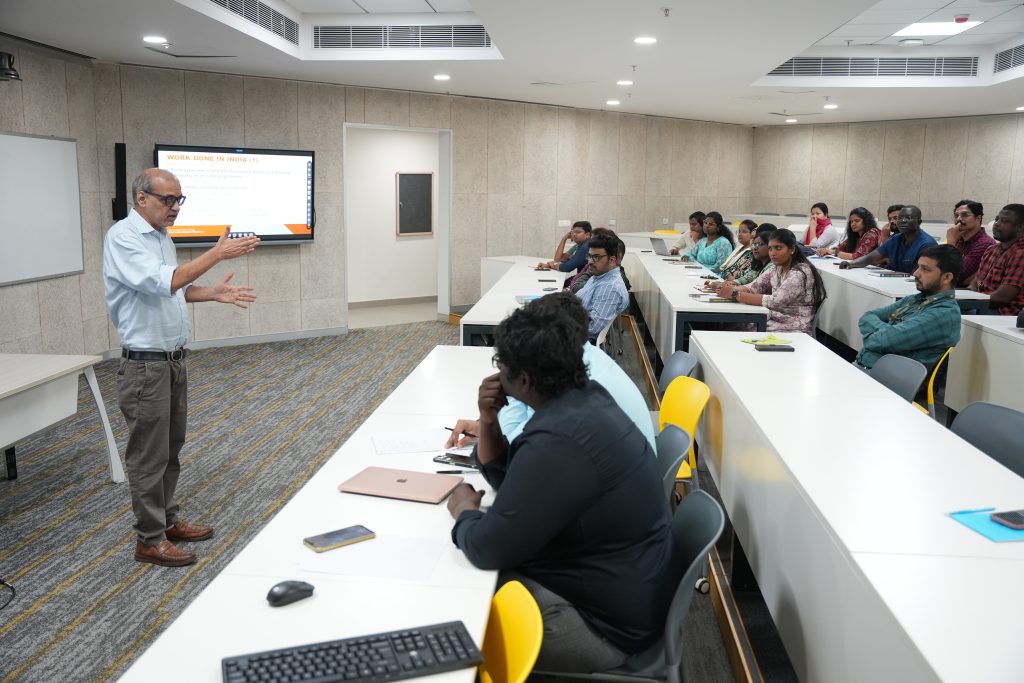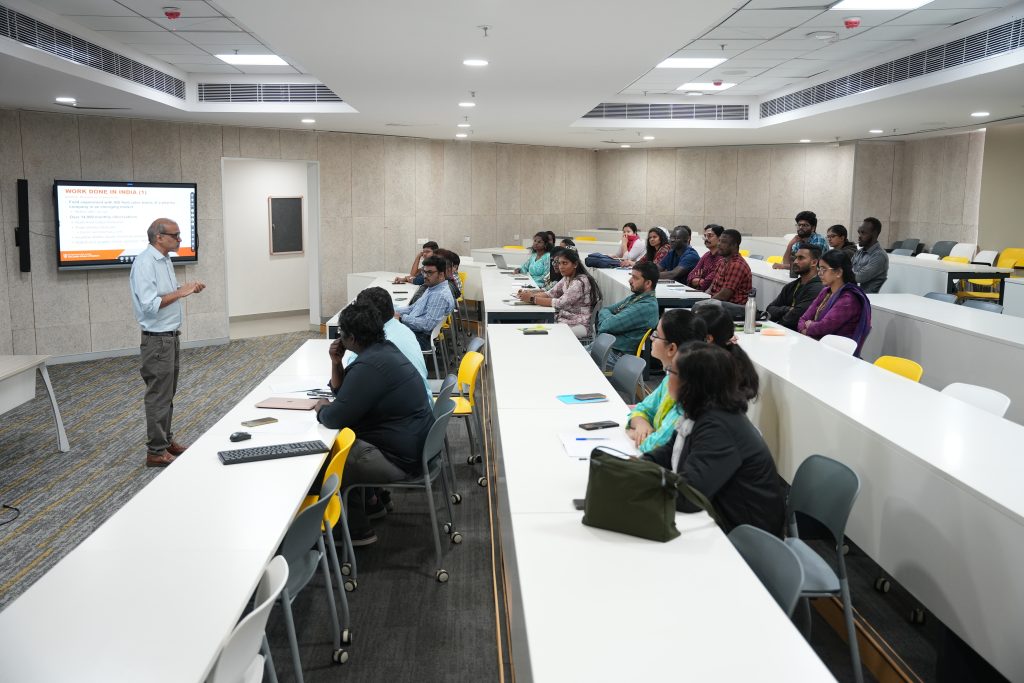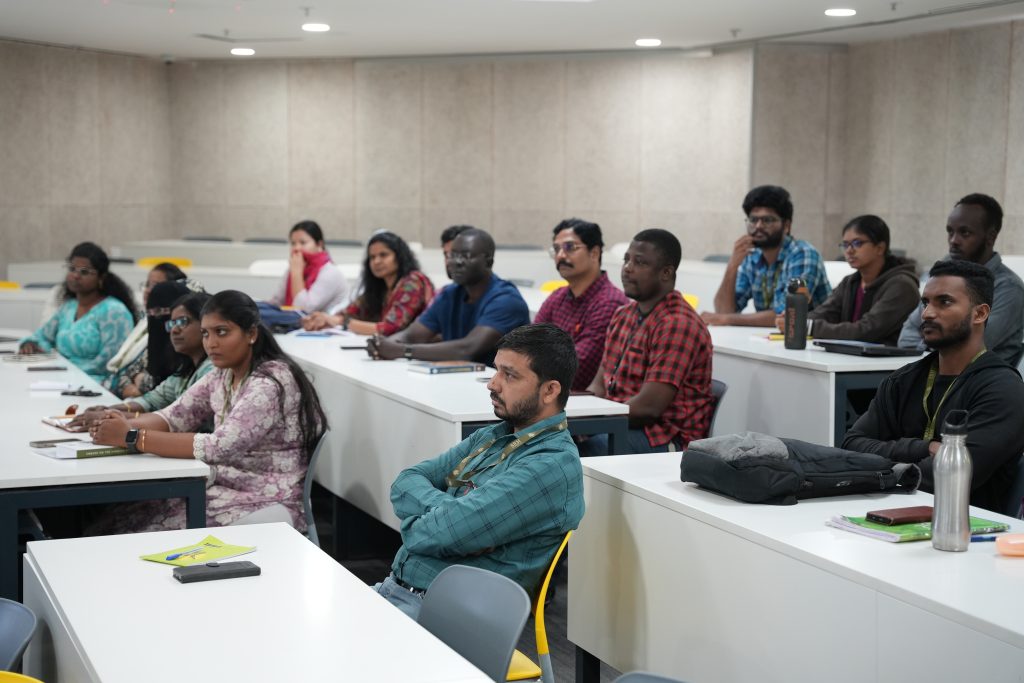A Critical Review in Understanding Equity and Social Justice in Mathematics Education
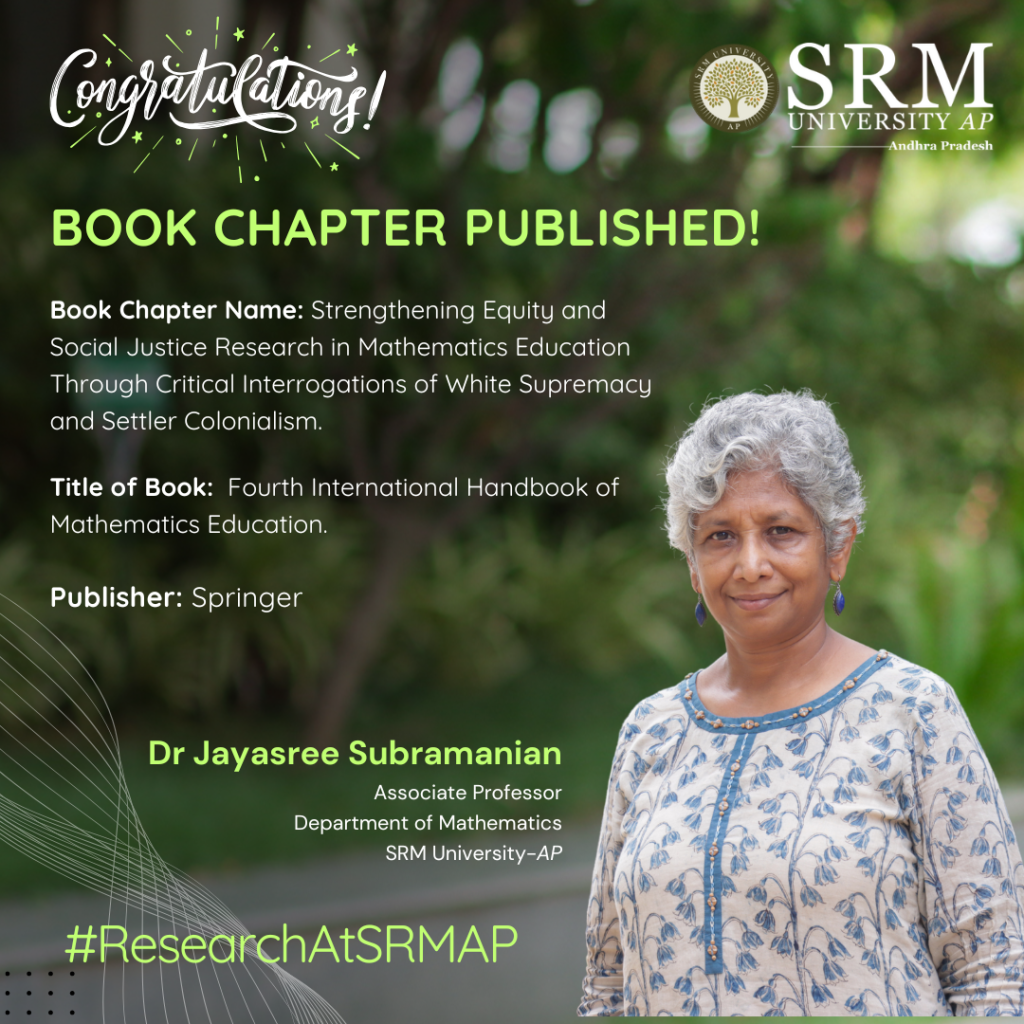
Dr Jayasree Subramanian, Associate Professor from the Department of Mathematics, has recently published a book chapter titled “Strengthening Equity and Social Justice Research in Mathematics Education Through Critical Interrogations of White Supremacy and Settler Colonialism” in the Fourth International Handbook of Mathematics Education by Springer Publications.
Abstract
In this chapter, we contextualise a suggested approach to strengthening equity and social justice research in mathematics education by inserting the mathematics education enterprise into two world events of 2020: the global COVID-19 pandemic and the global resurgence of the Black Lives Matter movement. Our intent in doing so is to underscore how white colonialism is forever present everywhere in structures and institutions around the globe, including those of the mathematics education enterprise. The logic of both white supremacy and settler colonialism are described next and then combined into a compounding scheme of colonising white supremacist logic. To illustrate that colonizing white supremacist logic is not a manifestation of only the West, a discussion of the conflicts and contradictions of white supremacy and Brahminical supremacy in the mathematics education enterprise of postcolonial India is offered. Brief summaries of the five chapters in the “Equity and Social Justice” section of this Handbook are then provided; we highlight how the chapter authors interrogated colonialising white supremacist logic within their respective chapters and point toward additional opportunities. In concluding the chapter, we feature recent USA-based mathematics education research to illustrate different possibilities when equity and social justice research is strengthened through critical interrogations of white supremacy and settler colonialism.
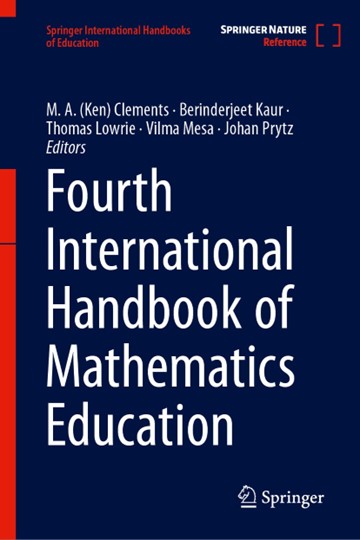
About the Book
The Fourth International Handbook discusses developments not recognised or dealt with entirely in the first three Springer Mathematics Education handbooks and tackles controversial issues in the field. After starting with a provocative introductory chapter which asks whether controversy is a healthy feature of international mathematics education, the four following sections cover: (a) mathematics education in Asia; (b) the roles of theory in research and practice; (c) equity and social justice; and (d) curriculum and change. These themes are taken up in 28 chapters by 60 authoritative authors from all continents. The four sections are structured based on past, present, and future aspects.
Like the first three mathematics education handbooks, this handbook provides a valuable resource for teachers, practitioners and researchers, education policymakers, mathematicians, and graduate and undergraduate students.
Co-authors of the Book Chapter
1. David W. Stinson, College of Education and Human Development, Georgia State University, Atlanta, GA, USA (Lead Coauthor)
2. Cathery Yeh, Center for Asian American Studies, University of Texas, Austin, TX, USA (Fellow coauthor)
- Published in Departmental News, Math News, News, Research News
Establishing an Innovative Technology for Intelligent Management of Battery Systems
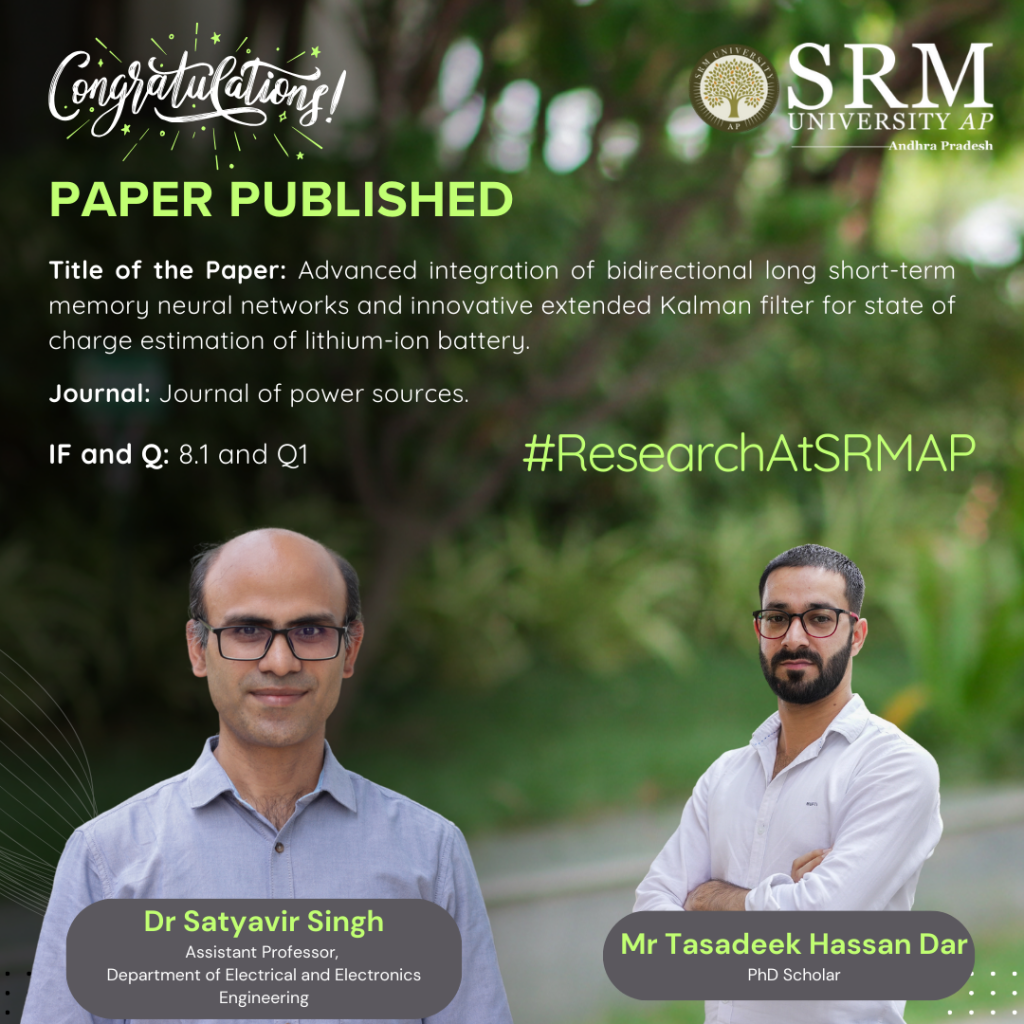
Dr Satyavir Singh, Assistant Professor from the Department of Electrical and Electronics Engineering and his PhD scholar, Mr Tasadeek Hassan Dar, have published a groundbreaking research paper titled “Advanced integration of bidirectional long short-term memory neural networks and innovative extended Kalman filter for state of charge estimation of lithium-ion battery.” The research that revolves around establishing technology for intelligent management of battery systems and their sustainability for longer life has been published in the Q1 journal, Journal of Power Sources, having an impact factor of 8.1.
Further to their research, the team will continue to work on robust techniques to BMS in the future.
Abstract
The state of charge (SoC) of a battery is a crucial monitoring indicator for battery management systems and it helps to assess how much further an electric vehicle can travel. This work proposes a novel approach for predicting battery SoC by developing a closed-loop system that integrates a bidirectional long short-term memory neural network with an innovative algorithm- extended Kalman filter. A second-order equivalent circuit model is selected, and its parameters are computed using the variational and logistic map cuckoo search approach.
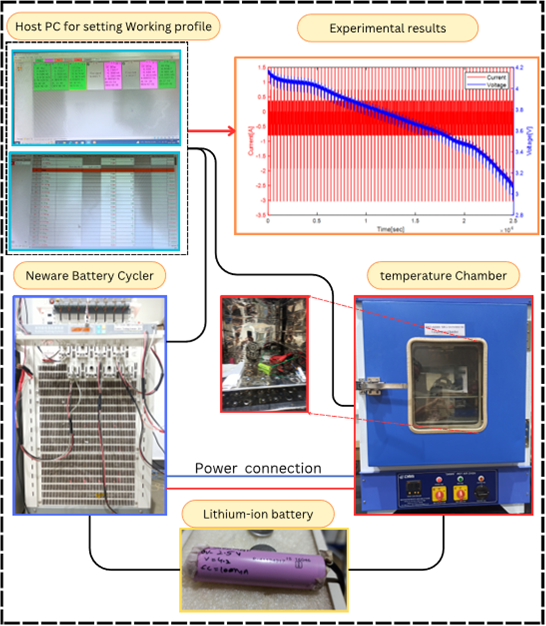
Further, an Extended Kalman filter is combined with an innovation algorithm to update process noise in real-time, and a bidirectional long short-term memory neural network takes the input from the Extended Kalman filter and gives the compensated error value for the final SoC estimation. 75% of dynamic stress test data from the Extended Kalman filter is used for training purposes, remaining data sets are used for testing purposes. The addressed algorithm is validated by evaluating its performance in comparison to individual algorithms and various combined approaches. Empirical analysis demonstrates that the proposed model achieves a root mean square error of 0.11% and mean absolute error of 0.1% positioning it as a valuable tool for battery management systems.
- Published in Departmental News, EEE NEWS, News, Research News
A Blockchain-Based Peer Tutoring Platform
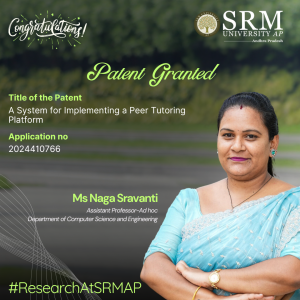 In a rapidly changing educational landscape, innovative solutions are key to enhancing learning experiences. Ms Naga Sravanti’s patent on A System for Implementing a Peer Tutoring Platform, introduces a blockchain-based peer tutoring platform designed to tackle challenges in traditional education.
In a rapidly changing educational landscape, innovative solutions are key to enhancing learning experiences. Ms Naga Sravanti’s patent on A System for Implementing a Peer Tutoring Platform, introduces a blockchain-based peer tutoring platform designed to tackle challenges in traditional education.
As we explore the implementation and societal implications of this platform, its potential to democratise education and create valuable connections among learners worldwide becomes evident. Join us in examining this innovative approach and its promising future research directions.
Abstract
This research presents a blockchain-based peer tutoring platform designed to enhance the quality and accessibility of education. By utilising blockchain’s decentralized and transparent features, the system ensures secure transactions, reliable certification, and the equitable management of peer tutoring activities. The platform aims to foster trust among users by recording all interactions and achievements on an immutable ledger, addressing critical challenges like data manipulation, lack of accountability, and accessibility issues in traditional education systems.
Explanation in Layperson’s Terms
Imagine a platform where students can teach and learn from each other without worrying about unfair practices or lack of credibility. This system uses blockchain, a technology that keeps records safe and transparent so that everyone can trust it. For instance, when a student tutors someone else, the system records this in a way that no one can alter. Certificates issued for achievements are also tamper-proof, making them reliable for future use. It’s like having a digital notebook that no one can tear a page from or erase anything written in it. This platform creates a fair and secure space where students and educators can collaborate effectively.
Practical Implementation and Social Implications
The peer tutoring platform has immense potential to revolutionise education:
Equity in Education: Students from diverse backgrounds can access quality tutoring at affordable costs or through a mutual exchange of knowledge.
Trust and Credibility: Blockchain’s secure system ensures that all records of learning and certifications are genuine and cannot be tampered with.
Recognition of Effort: Tutors can build verified portfolios showcasing their expertise and contributions, which can be used for job opportunities or further education.
Global Collaboration: Learners and educators worldwide can connect, exchange knowledge, and grow together, breaking geographical barriers.
Collaborations
This research has benefited from partnerships with educational institutions, blockchain developers, and organizations promoting innovative learning methodologies. Collaborators include academic peers at SRM University-AP and technical support from blockchain technology firms specializing in educational applications.
Future Research Plans
Building on this work, the following directions will be explored:
- Gamified Learning: Introducing game-like features to make learning more engaging and interactive.
- AI-Driven Personalization: Integrating AI to recommend the best tutors and resources for individual learners based on their unique needs.
- Scalability: Expanding the platform to accommodate millions of users globally without compromising speed or security.
- Real-World Deployments: Partnering with schools, universities, and governments to implement the system on a larger scale, bringing tangible benefits to communities.
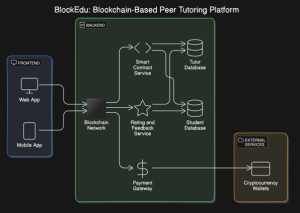
- Published in CSE NEWS, Departmental News, News, Research News
Prof. Lakshmivarahan’s Discourse on Data Mining vs Data Assimilation
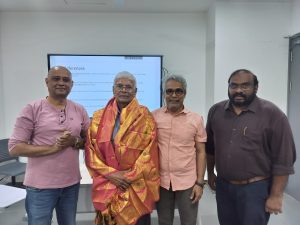 The Department of Mathematics organised a guest lecture series by Prof. Lakshmivarahan, Professor Emeritus from the University of Oklahoma, Norman, USA on “Data Science and Big Data Analytics & Its Applications in Mathematics”. The conference featured dignitaries including Dean- School of Engineering and Sciences , Prof. C V Tomy and Head-Department of Mathematics, Prof. Kalyan Chakraborty. Around 30 students including Research Scholars, Masters and Bachelors students and around 4 faculty members were present during the lecture series.
The Department of Mathematics organised a guest lecture series by Prof. Lakshmivarahan, Professor Emeritus from the University of Oklahoma, Norman, USA on “Data Science and Big Data Analytics & Its Applications in Mathematics”. The conference featured dignitaries including Dean- School of Engineering and Sciences , Prof. C V Tomy and Head-Department of Mathematics, Prof. Kalyan Chakraborty. Around 30 students including Research Scholars, Masters and Bachelors students and around 4 faculty members were present during the lecture series.
As part of the inaugural address, Dr Repaka Subha Sandeep, Assistant Professor and programme convenor emphasised the vital role of Artificial Intelligence, Machine Learning and Data Science in our contemporary society. He stated that, “This conference serves as a crucial platform for discussing the emerging trends and innovations in Artificial Intelligence and Machine Learning, reflecting its significance in various sectors today.”
The lecture series on “Data Mining vs Data Assimilation” discussed how data mining started in the early ages and how it evolved to the present ages. The lectures were based on the confluence of Artificial Intelligence and Data Science, wherein he discussed how data mining is being done in the present scenario. He then discussed what is data assimilation and how it can be understood by the fusion of mathematical models and data. Later he discussed what are direct and inverse problems which helps to understand the relationship between data mining and data assimilation. He further elaborated on the classification of mathematical models and the various types of data which arise in nature. Lastly, he discussed the estimation and optimisation of the problems brought forward in the lecture series.
The event concluded with the recognition of Professor Lakshmivarhan, Dean-SEAS, Prof. C V Tomy and Head of the department- Mathematics, Prof. Kalyan Chakraborty.
- Published in Departmental News, Math News, News
International Mathematicians Assemble for the RAMRA Conference at SRM AP
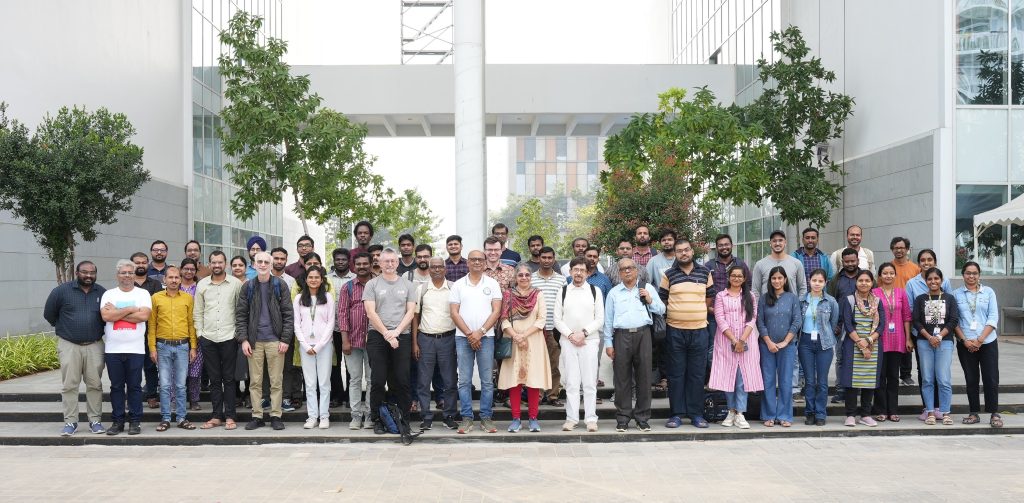
The Department of Mathematics organised the International Conference on Recent Advances in Mathematics and Related Areas 2025, from January 14 – 19, 2025, featuring the latest advancements in the field of pure and applied mathematics and theoretical computer science. The conference featured esteemed speakers like Fred Diamond (King’s College London), Ken Ribet (UC Berkeley), Jean-Marc Deshoulliers (University of Bordeaux), Gyula Katona (Alfred Renyi Institute Hungary), Olivier Ramare (CNRS France), Vita Kala (Charles University Prague) Mahan Maharaj, Anish Ghosh, Eknath Ghate (TIFR Mumbai), Apoorva Khare (IISC Bengaluru), U K Anandavardhanan (IIT Mumbai), Sukumar Adhikari (RKMVERI), B Ramakrishnan, Madhavan Mukund (CMI), Meena Mahajan (IMSc Chennai), Ken Ono (University of Virginia), and Anupam Saikia (IIT Guwahati).
The conference included sessions on topics and cutting-edge research on number theory, representation theory, Langlands program, geometry and topology, ergodic theory, lie algebra, diophantine approximation, modular forms, graph theory, combinatorial algebra, theoretical computer science, etc.
In his inaugural address, Dr Kalyan Banerjee, Assistant Professor and programme convenor from the Department of Mathematics, mentioned the importance of this conference in the research of mathematics and related areas. The Head of the Department, Prof. Kalyan Chakraborty talked about the history and relevance of this conference in the context of Indian and international mathematical communities.
On the last day of the conference, the Vice Chancellor of SRM AP, Prof. Manoj K Arora, SRM University-AP, hosted an interactive session with the distinguished speakers of the conference and other participants. In this interaction, the possibility of collaboration (both teaching and research) with different foreign universities was discussed.
The conference hosted 17 distinguished invited speakers from India and abroad and 8 young scholars. There were 40 participants from different research institutes in India, such as IISER, IMSc, CMI, and IITs. An upcoming conference proceeding will feature the articles of the invited speakers in association with Springer Proceedings. Additionally, the National Board of Higher Mathematics generously supported the conference.
- Published in Departmental News, Math News, News, Research News
Women in Leadership: Two-Day ICSSR-sponsored Conference Come to a Successful End
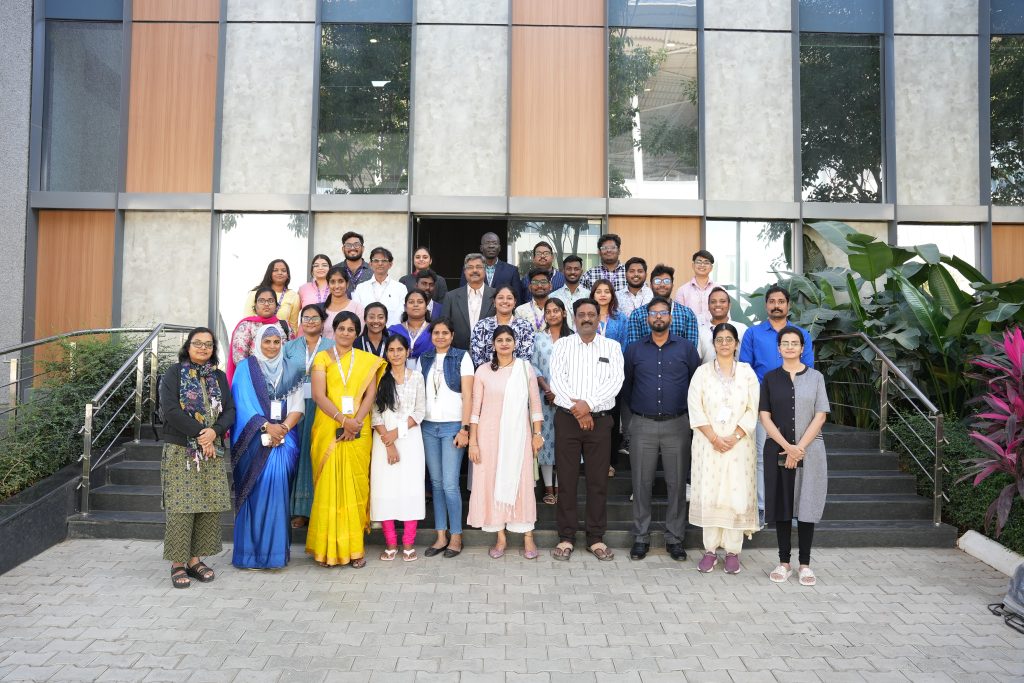
The Paari School of Business hosted its Two-Day ICSSR-sponsored National Conference on the theme “Women in Higher Educational Institutions (HEIs) and Career Progression” as part of the Vision Viksit Bharat@2047 initiative on January 23 – 24, 2025. This event brought together academics, delegates, and leaders to discuss research findings and actionable solutions for advancing gender equity in academia and leadership roles.
Prof. Bharadhwaj Sivakumaran, Dean – Paari School of Business, delivered the welcome address and officially inaugurated the conference. In his address, he highlighted the significance of the conference in promoting the Viksit Bharat Programme and fostering inclusivity in education, drawing attention to the persistent gender disparity in leadership roles within Indian academia, citing that very few Indian Institutes of Management (IIMs) have female directors and only a small percentage of Indian universities are led by women Vice-Chancellors. Prof. Bharadhwaj commended the efforts of researchers like Dr Kamesh, whose ICSSR-funded study on breaking the glass ceiling effect secured a ₹20 lakh grant, which focuses on understanding and addressing barriers that limit women’s progress to leadership positions in higher education.
The first keynote address was delivered by Ms Rekha V, Vice President of HR at vCom Solutions, California, on the glass ceiling effect, and its impact on women. She began by acknowledging the efforts of the organising committee in addressing this pressing issue and shared her perspective on the systemic barriers that hinder women’s advancement in leadership roles across sectors.
Ms Rekha commented, “There is a high underrepresentation of women in senior leadership roles, for example, in the tech sector. This disparity results from various biases that obstruct their career progression.” She emphasised that the challenges extend beyond mere representation, involving deeply ingrained issues such as unconscious bias, gender stereotypes, limited access to promotions, and inequitable pay structures, despite evidence showing that women often outperform their male counterparts.
She insisted organisations make conscious efforts to address these challenges by creating awareness about them, setting up mentorship programs, advocating for pay equity, and promoting transparent promotion practices. Her statement, “Be the change, Bring the change,” served as a reminder to actively contribute to creating diverse environments that champion gender equity and work towards shattering the glass ceiling and building societies where every woman has opportunities to rise to the highest levels. The keynote address concluded with an engaging Q&A session, during which the discussion focused on the thought-provoking questions asked by the audience.
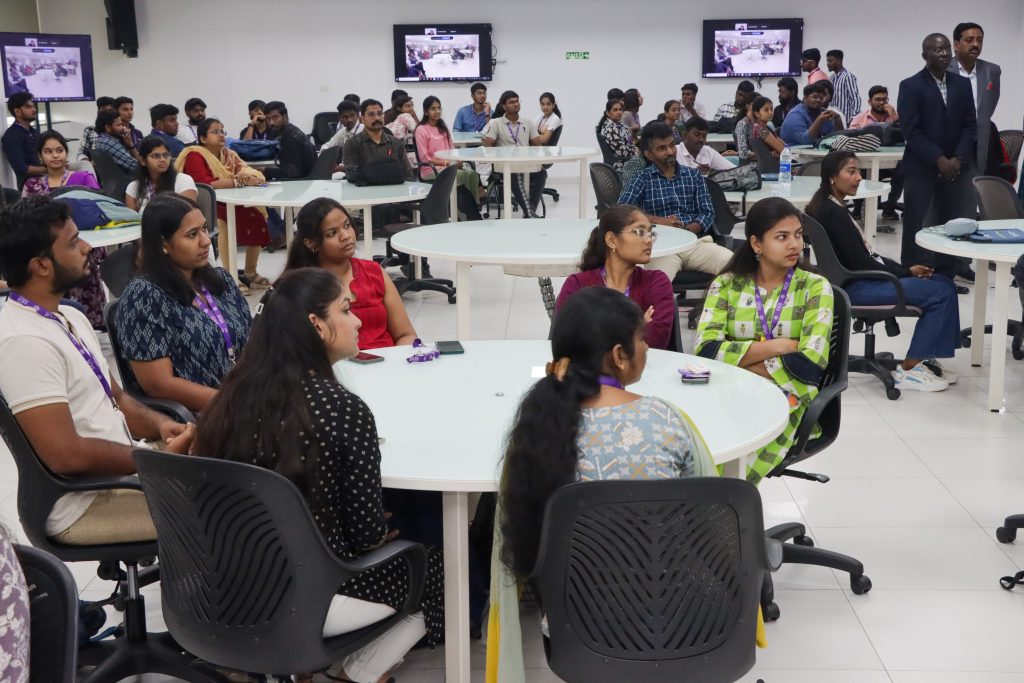
The second keynote address was delivered by Dr Syed Sadiq, a UN Women Representative from Kyrgyzstan. He commended the Paari School of Business and ICSSR for their dedication to advancing women’s rights and higher-education career opportunities. Reflecting on global progress since the first International Women’s Day in 1911, he highlighted achievements like equal voting rights, leadership opportunities, and establishing landmark treaties like the UN CEDAW (Convention on the Elimination of All Forms of Discrimination Against Women).
Despite these advancements, Dr Syed spoke about the persistent challenges women face in achieving equal pay, breaking barriers to leadership, and addressing workplace discrimination. He emphasised the need for gender-inclusive policies in higher education, targeted funding, mentorship programs, and stronger laws to combat harassment and discrimination. His “Change the Trend” and “Women Deserve More” statements were inspiring. He also discussed how systemic efforts that align with the Sustainable Development Goals (SDGs) can bring meaningful change to ensure no one is left behind.
The two-day conference also had various sessions on the barriers and biases that lead to the underrepresentation of women in leadership roles. The event concluded with a felicitation ceremony where both speakers were awarded a memento in appreciation of their remarkable sessions as keynote speakers.
- Published in Conferences, Departmental News, News, Paari Current Happenings
3-Day Conference on “From Big Bang to Now” Concludes
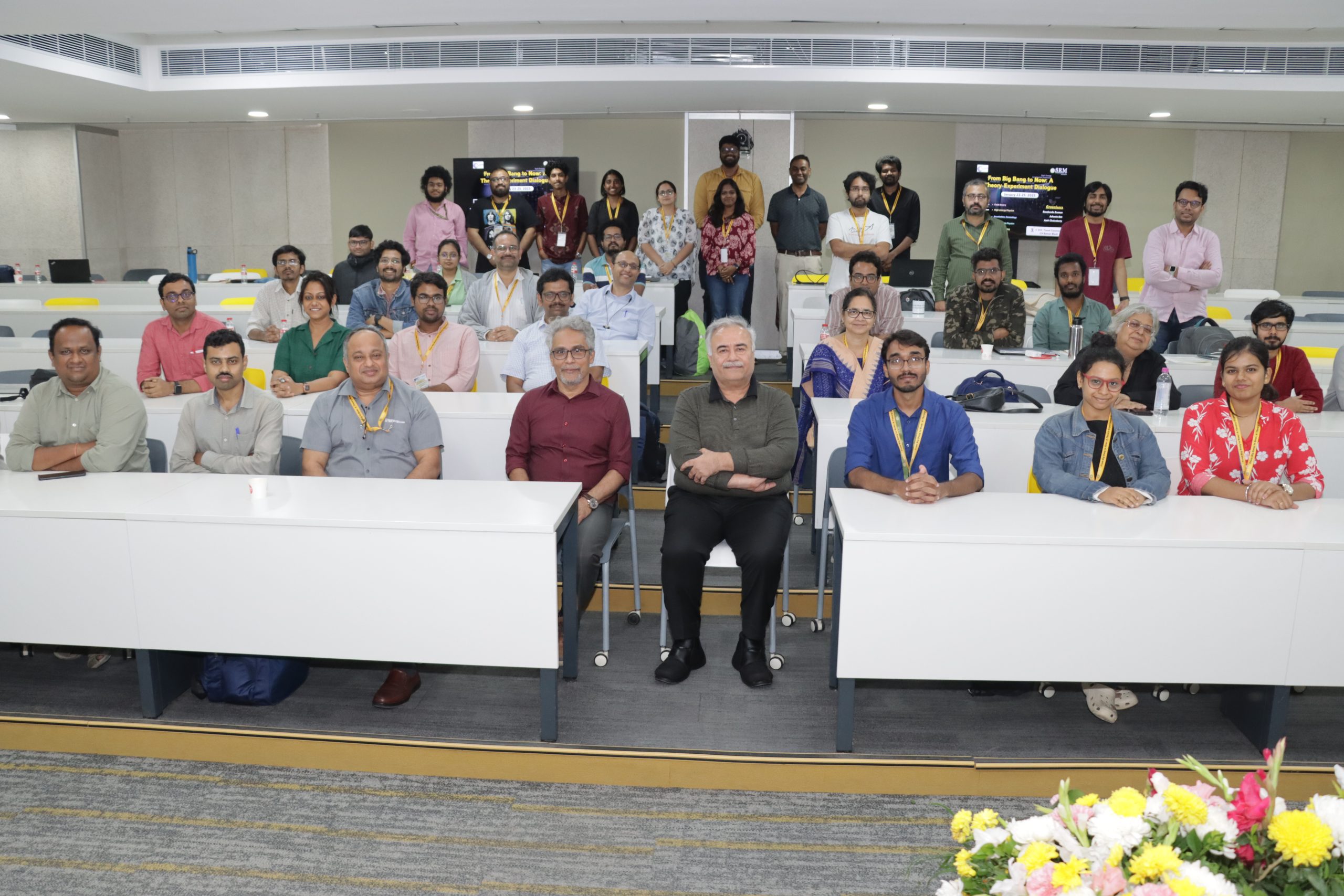 The Department of Physics organised a 3-day conference on “From Big Bang to Now : A Theory-Experiment Dialogue.” The event witnessed the presence of – Prof. Ranjit Thapa, Dean-Research; Dr C V Tomy, Dean-School of Engineering and Sciences, Dr Pranab Mandal, Head – Department of Physics, Prof. Sreerup Raychaudhuri along with Assistant Professors Dr Ashmita Das, Dr Basabendu Barman and Dr Amit Chakraborty.
The Department of Physics organised a 3-day conference on “From Big Bang to Now : A Theory-Experiment Dialogue.” The event witnessed the presence of – Prof. Ranjit Thapa, Dean-Research; Dr C V Tomy, Dean-School of Engineering and Sciences, Dr Pranab Mandal, Head – Department of Physics, Prof. Sreerup Raychaudhuri along with Assistant Professors Dr Ashmita Das, Dr Basabendu Barman and Dr Amit Chakraborty.
As part of the inaugural address Dr C V Tomy highlighted the varsity’s prowess in terms of its accomplishments for a relatively young University, he stated that the varsity’s H-index of 59 reflects its significant global impact, the department of physics has also been the FIST sponsored Department among many other departments in the university.
Prof. Ranjith Thapa in his address stated, “SRM University-AP is a self-reliant institution, generating its own resources to fund cutting-edge research and education,” he also welcomed students to be a part of the academic community at SRM AP.
The Department head, Dr Pranab Mondal stated, “Since the inception we have grown tremendously as a department and as a university, both in terms of academic output and research impact. We also focus on actively collaborating with other departments to focus on not just research but also on advancing higher education and have strived to make the department what it is today.”
Prof. Sreerup Rayachaudhuri, visiting professor at the varsity and former professor at the TIRF said, “There are 4 categories of universities in India, the IITs, the private universities, the government universities and research institutes. Although SRM AP is a private university, it strongly encourages research, the very existence of this conference today, exemplifies the varsity’s commitment to fostering research culture.”
The conference also featured engaging presentations and lectures by students and faculty from various prestigious institutions across India. The event served as a platform for knowledge exchange, and networking, further strengthening SRM University-AP’s reputation as a hub for academic and research excellence.
The 3-day conference concluded with a renewed commitment to spreading knowledge in the field theory, high-energy physics, Astroparticle physics and Machine Learning, ensuring that SRM University-AP continues to contribute significantly to global scientific progress.
- Published in Departmental News, News, Physics News
SRM AP Partners with Uniglobus Electrical and Electronics Pvt. Ltd. for EC-less LED Lighting Research
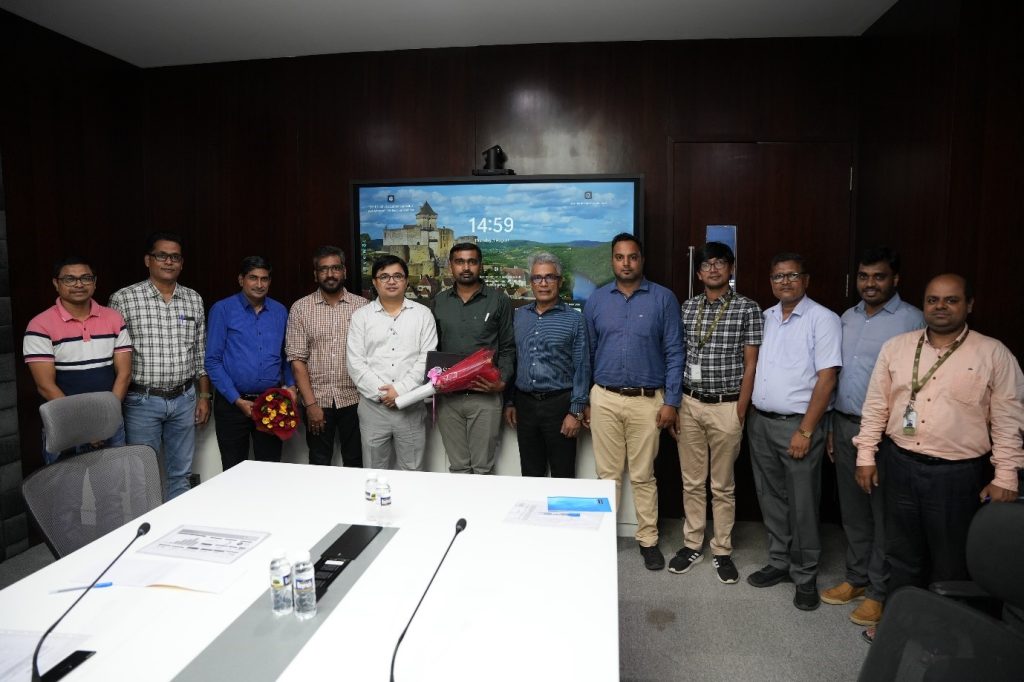
In a significant stride towards advancing sustainable energy technologies, SRM University-AP has signed an Memorandum of Understanding (MoU) with Uniglobus Electrical and Electronics Pvt. Ltd. The collaboration aims to develop cutting-edge EC-less LED lighting systems through a joint research initiative. The partnership was formalised following an exploratory visit by Uniglobus representatives, Mr Gajanan Inamdar and Mr Saurabh Maheta, to SRM AP. During their visit, they engaged in extensive discussions with the university faculty, identifying EC-less LED drivers as a promising area for impactful research.
Dr Ramanjaneya Reddy Udumula, Assistant Professor from the Department of Electrical and Electronics Engineering, will lead this innovative project as the Principal Investigator. Highlighting the significance of the collaboration, he noted, “This research initiative will address critical challenges in energy-efficient lighting while fostering a bridge between academic insights and industrial expertise.”
Uniglobus has also invited Dr Udumula to visit its state-of-the-art facilities to gain an in-depth understanding of their advanced product line. This visit underscores the mutual commitment to fostering a symbiotic relationship between academia and industry, paving the way for groundbreaking technological advancements.
Key figures instrumental in making this collaboration a reality include Vice Chancellor Prof. Manoj K. Arora, Prof. Ranjit Thapa, Dean of Research; Prof. Vinod Kumar G S, Associate Dean of the Technology Transfer Cell; and Prof. C.V. Tomy, Dean of the School of Engineering and Applied Sciences (SEAS). Their collective efforts, alongside the support of Mr BS Praveen from Uniglobus, have laid the foundation for this transformative partnership.
The project focuses on addressing critical global challenges associated with energy sustainability and efficiency. With the rapid industrial growth and increasing global population driving energy demand, the limitations of conventional energy sources have become a pressing concern. Governments and industry leaders worldwide are calling for innovative solutions to promote energy-saving and sustainable technologies.
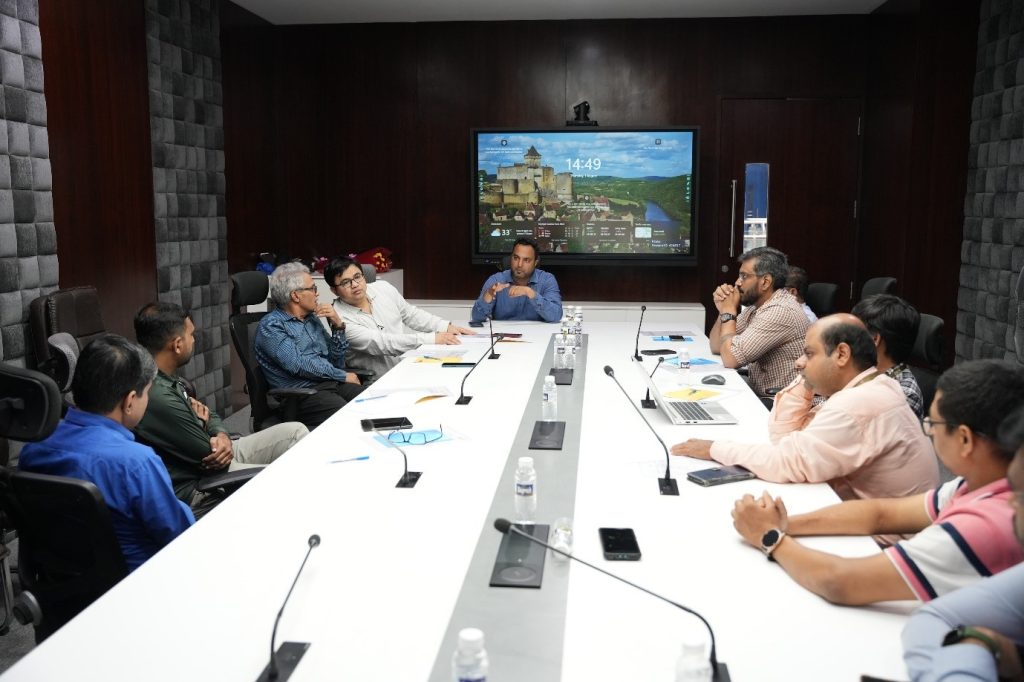
A Game-Changing Innovation
The research aims to develop an Electrolytic Capacitor (EC)-less, ripple-free LED driver system. Unlike conventional LED drivers, this system employs a DC-DC converter as a power factor correction (PFC) unit and a bi-directional buck-boost converter (BDC) to eliminate second harmonic ripples. This configuration simplifies control mechanisms while ensuring high power factor and reduced total harmonic distortion, delivering a steady DC current to the LED load.
Towards a Sustainable Future
This collaboration marks a significant milestone in addressing sustainability challenges through innovation. By merging the academic expertise of SRM University-AP with the industrial insights of Uniglobus Electrical and Electronics Pvt. Ltd., the partnership seeks to deliver impactful solutions for a greener, more sustainable future.
The MoU underscores SRM University-AP’s commitment to fostering innovation through strategic collaborations, positioning the institution at the forefront of research and technological development in energy efficiency. Both partners look forward to a fruitful and enduring collaboration that promises to benefit society at large.
- Published in Departmental News, EEE NEWS, MoU, News, Research News
Lecture on Experimental Research Design by Prof. C Raghunath
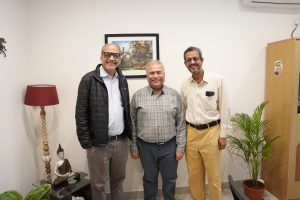 The Department of Management under the Paari School of Business organised an engaging interactive session with Faculty and PhD Scholars on Experimental Research Design. The session was addressed by Prof. Raghunath Singh Rao, Professor of Marketing at UT, University of Texas, Austin. The event provided an insightful discussion on Marketing Research where Prof. Raghunath Singh Rao shared personal insights on his research and experiments conducted in India since 2014.
The Department of Management under the Paari School of Business organised an engaging interactive session with Faculty and PhD Scholars on Experimental Research Design. The session was addressed by Prof. Raghunath Singh Rao, Professor of Marketing at UT, University of Texas, Austin. The event provided an insightful discussion on Marketing Research where Prof. Raghunath Singh Rao shared personal insights on his research and experiments conducted in India since 2014.
During the session, Prof. Rao discussed a specific experiment in the healthcare sector, highlighting the necessity of preventive healthcare in rural areas. He also presented findings from an experiment focused on the role of incentives for medical representatives and how these incentives influence their performance and sales strategies. His expertise on designing and implementing field experiments in India, offering practical insights and methodologies for conducting impactful research in the Indian context.
The outcome of the programme was two-fold. First, participants learned how to conduct in-field experiments addressing practical problems in India. Prof. Raghunath Singh Rao provided a framework for identifying relevant issues and designing experiments that can yield actionable insights. Second, attendees gained a comprehensive understanding of effectively conducting these experiments. Key points emphasised included the importance of clear objectives, selecting appropriate control and treatment groups, ensuring ethical considerations, and maintaining rigorous data collection and analysis methods. Prof. Rao also highlighted the need for adaptability in the field, considering local contexts and potential challenges. Additionally, the session covered how to conduct research through mathematical models, providing a robust approach to analysing complex data and deriving meaningful conclusions. This knowledge equips researchers with the tools to design and implement impactful field experiments, ultimately contributing to solving real-world problems in India
- Published in Departmental News, News, Paari Current Happenings
Patent on SQL Free Database Interaction
This research, by Dr Ashu Abdul, Assistant Professor and research scholar Ms Surya Samantha Beri along with forth-year student, Mr Jakkampudi Venkatasubbaiah from the Department of Computer Science and Engineering explores a framework designed to help users retrieve and analyse data without requiring any Structured Query Language (SQL) knowledge. The patent titled, “System and Method for Generating Structured Queries from Natural Language Inputs , with application no: 202441096460 is particularly relevant as it enables individuals, like a car dealer seeking sales insights, to interact with their databases using everyday language. Such accessibility underscores the importance of this research in democratising data access for all users.
Abstract:
This project is centred around creating a framework that translates user queries into SQL statements and retrieves results without requiring any SQL knowledge from the user. By delving into the workings of various RDBMS systems, with a special focus on MySQL, I developed a solid understanding of database architecture and how databases are engineered for optimized performance. This knowledge was critical in designing a system that can seamlessly interact with any given database, analyse it, and provide relevant results in response to user input.
About the Framework:
This framework is intended to convert the user queries into SQL statements and attain the results from the database without intervention of SQL coding. Every time writing multiple SQL commands to apply filters, commands, and extracting data is time-consuming and requires having knowledge of SQL knowledge. This project is intended to analyze a database and answer the questions that are related to a particular database without writing SQL commands.
Explanation in Layperson’s Terms:
In-General we rely on programmers who are efficient in programming SQL for finding the insights from the database which are related to business or information. So, Laymen cannot access data without knowing SQL this project makes it possible. Assume, Mr. A a car dealer owns a showroom has a software dealing with his Business he wants to access his data and get insights for understanding the sales. Now he is not familiar with using SQL so he relies on someone for that or opens software and applies multiple filters to analyze his data. But What if he can use a chatbot and get solutions for all his questions from his database?
Mr.A can get conclusions from his data within no-time that thought represents this entire project.
What are the use cases of this framework to a layman?
Laymen interaction with the database for understanding their data. Reducing the requirement to understand and search for the filters in the front-end. Faster data extraction from the database. Generating the results based on user queries in natural language without SQL coding. Elimination of time and efforts required for writing SQL Commands or applying filters. Understanding data gets easier for engineers as well as unknown data can be understood easily.
Practical Implementation:
This project has been successfully integrated into several existing real-time applications, enabling precise identification of data locations. By fine-tuning and enhancing our algorithms, we have achieved significant improvements in accuracy. In practical terms, users can effortlessly explore and comprehend their data.
Furthermore, extensive testing across databases of varying sizes has demonstrated the project’s ability to deliver significant and well-structured results.
Future Enhancements:
Incorporating Natural Language Processing (NLP) to process and respond to queries in users’ native languages, including speech-to-text capabilities.
Facilitating the generation of dynamic reports in various formats such as PDFs and Excel sheets.
Expanding compatibility to support additional database systems like Oracle, PostgreSQL, and NoSQL models.
Enabling data extraction and analysis from Excel sheets and CSV files.
- Published in CSE NEWS, Departmental News, News, Research News


